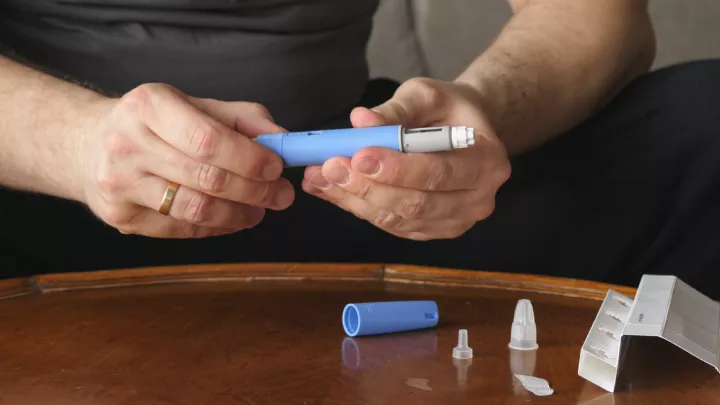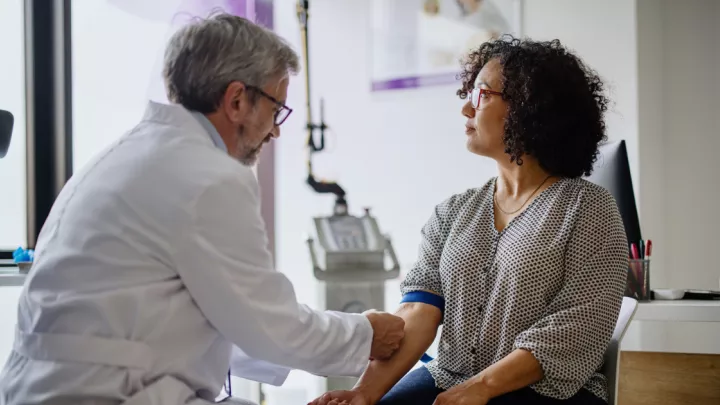When to transition from a pediatrician to a family medicine doctor

Even if it feels like the day is in the distant future, all children will reach a point when they need adult health care.
Rachel Johnson, MD, a combined internal medicine and pediatrics physician, or med-peds, says it is never too early to be aware of that transition. There are many factors to consider, she advises, starting with a patient’s health history and needs.
“For our children with chronic medical illness, we recommend starting to think about transitioning, or making a transition plan, around age 13 to 14, or even younger than that,” Dr. Johnson says. “The last thing we want is for the patient to no longer be able to see their pediatrician, and there’s no plan in place, especially when you’re seeing a lot of providers, or need a lot of equipment or help with services.”
For patients who are generally healthy and see their pediatrician for routine checkups and minor illnesses, high school or early college is a good time to think about transitioning to an adult health care provider, Dr. Johnson says.
“What I see a lot is young adults getting sick, and then, all of a sudden, they don’t have a doctor,” she says. “So, ideally, the transition takes place at the end of the high school years and before you even need the doctor.”
If you currently see a pediatrician, they can help develop a plan to transition to adult care. Dr. Johnson also suggests visiting the Got Transition® website, which provides tools and resources for parents, caregivers and young people.
Types of providers
There are many choices when it comes to providers for children, young adults and beyond.
Pediatricians treat infants, children, adolescents and young adults. Dr. Johnson says, “They spend a lot of their training in the hospital, taking care of sick children, as well as seeing kids outside the hospital. So they are well versed in not only well-child care but also kids with complicated histories and medical care.”
Family medicine physicians treat patients of all ages. They may care for all family and are trained to diagnose and treat a broad range of conditions.
Internal medicine physicians are skilled practitioners in adult medicine who care for patients 19 and older.
Med-peds doctors have dual training in internal medicine and pediatrics and can care for patients of all ages.
Nebraska Medicine family medicine doctors, as well as med-peds doctors like Dr. Johnson, care for patients of any age. If you or your child currently see a family medicine or med-peds doctor, you can continue seeing the same provider from childhood into adulthood.
Health care in college and beyond
In college, many students are living away from home for the first time. Dr. Johnson says it is important for students to establish healthy habits during this time.
“Especially as a doctor who takes care of patients of all ages, I know how critical the young years are and how the choices you make about your health can affect you down the road,” Dr. Johnson says. “So it is very important, even if you feel healthy, to establish care with a doctor and get your annual physical to make sure you are up to date on vaccines and lab work.”
Nebraska Medicine providers care for students at university health centers at UNO, UNL and UNMC. They can help students navigate situations that they may be facing for the first time, including:
- Screening for sexually transmitted diseases
- Understanding the effects of alcohol and drugs
- Learning to manage personal health away from home
“These providers are well-versed in answering the questions that college-age patients are asking,” Dr. Johnson says. “They can be discussed in a safe environment and allow the students to take ownership of their health and be empowered to make positive health decisions.”
While Dr. Johnson acknowledges it can be difficult for parents to hand the reins over to their college-age children, trusting them to learn to take care of themselves is an important step. The student health center can provide a steppingstone in that process.
“It’s like learning to ride a bike with training wheels in a safe environment, where a provider can help guide a student in making good health decisions, so they’ll be ready to do it on their own as they leave college.”







